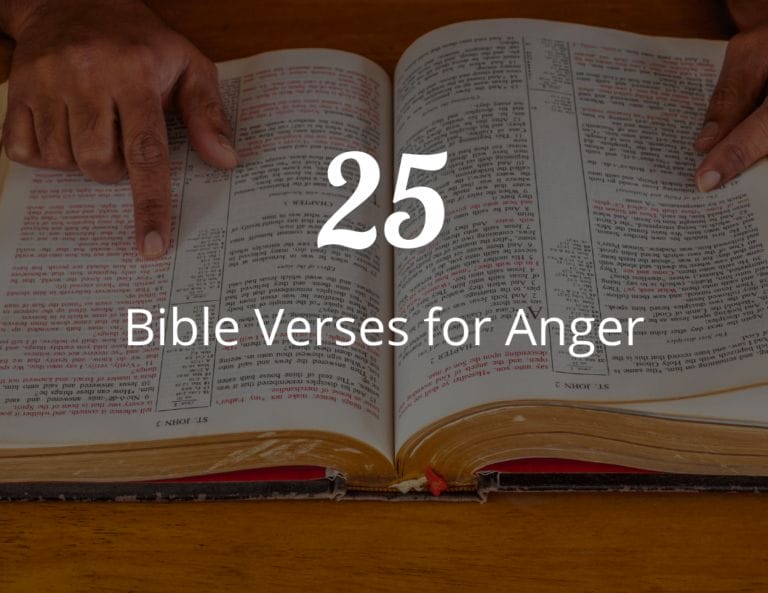Peace is a precious gift, one that many of us search for throughout our lives. But how do we find it? The Bible has something to say about this!
In the verses related to living in peace, we are given a number of reminders and encouragements to help us on our journey towards inner peace. From living in peace with yourself to living in peace with others and the world around you – there’s no shortage of wisdom here!
Let’s explore the Bible’s advice on living in peace together. We’ll look at what it means to live peacefully within ourselves, with those closest to us, and ultimately, with the entire world.
With these insights into how we can cultivate harmony and understanding within ourselves and beyond, let’s get started!
Overview of Bible Verses About Living in Peace
You can find a variety of scripture that addresses the topic of harmony and calmness in our lives. So, let’s take a closer look at some of these passages. The Bible encourages us to seek unity in our relationships with others, spread love amongst our communities, and strive for peace within ourselves.
It helps us understand how we can live peacefully with one another, by teaching us to respect each other’s differences and embrace understanding over division. These Bible verses remind us that only when we are living in peace can we truly experience all God has intended for us.
With this in mind, let’s explore what it means to live in peace with ourselves.
Living in Peace With Yourself
Making peace with yourself is a journey that can seem never-ending, but you’ll be amazed at how far you can go in the blink of an eye!
Practicing self-care and managing stress are essential components to making peace with yourself. Taking time each day for reflection, relaxation, and rejuvenation can help reduce feelings of anxiety, stress, and depression.
Recognizing your strengths and weaknesses, forgiving yourself when needed, and learning to accept who you are will also help bring inner peace. Achieving harmony within oneself is an important part of living in peace; by doing so, you set the stage for peaceful relationships with others.
So take a moment today to nurture your own well-being—you deserve it!
As this journey continues onward towards greater inner peace, another step awaits: living in peace with others.
Living in Peace With Others
Living in peace with others is an important part of living a full life. Treating those around you with respect and understanding, while also learning to forgive those who have hurt you, can help foster healthier relationships and lead to greater overall contentment.
In order to achieve this state of harmony, it’s essential that we take the time to practice self-care as well as cultivate empathy for our fellow humans.
Treating Others With Respect
Show respect to others, and they’ll show it back – it’s a two-way street! A key part of living in peace with others is respecting their boundaries and setting limits.
This means allowing people to have their own space and opinions without infringing upon them. It also requires you to be mindful of your behavior and not impose your beliefs onto someone else.
Respectful relationships are based on mutual consent, understanding, and empathy which can lead to more meaningful connections with those around you. When you demonstrate respect for all people, regardless of background or belief system, then peace has the potential to flourish.
Transitioning into the next section about forgiving those who have hurt you, it’s important to remember that even if we don’t agree with someone else’s actions or words we can still practice treating them with dignity and kindness.
Forgiving Those Who Have Hurt You
Forgiving those who have hurt you may seem impossible, but it can be a freeing experience that allows you to soar like an eagle.
Taking the time to forgive those who have wronged us and understanding what exactly forgiveness is can bring about inner peace and healing.
Forgiveness does not mean condoning someone’s bad behavior, rather, it means letting go of anger and resentments in order to move forward with your life.
It also means recognizing that everyone makes mistakes, so by forgiving others we’re able to reclaim our own personal power from the situation.
With forgiveness comes understanding, which leads to inner peace and greater harmony within ourselves.
This serenity then transcends outward into living in peace with the world around us.
Living in Peace With the World
You can find joy and harmony by embracing a positive outlook towards the world around you. As we learn from our mistakes, we should strive to be kinder and more understanding of others; seeking to live in peace with one another.
The Bible offers many examples of how to do this, such as: Romans 12:18 which says “If it’s possible, as far as it depends on you, live at peace with everyone”. We can also look to the example of Jesus Christ who showed us how to love and serve one another (John 13:34).
By following these teachings, we can learn to accept each other’s differences and appreciate what makes us unique while living in peace with the world.
Frequently Asked Questions
What other religions advocate for living in peace?
Living in peace is an ideal that many religions strive for. Interfaith dialogue and peaceful activism are two key components of this endeavor, and you can make a real difference in your community by supporting these initiatives.
From Christianity to Buddhism to Islam, religious traditions around the world emphasize the importance of living in harmony with one another. In each faith, there are holy scriptures that promote non-violence and understanding between people from different backgrounds.
Through acts of kindness, compassion, and generosity we can all help create a more peaceful world where everyone lives together in harmony and mutual respect.
How can I practice living in peace on a daily basis?
You can practice living in peace on a daily basis by engaging in activities that focus on being mindful and expressing gratitude.
Mindfulness is the practice of focusing your attention on the present moment, without judgment. Being mindful can help to bring awareness to your thoughts, feelings, and experiences as they arise, which can lead to greater insight into yourself and others.
Expressing gratitude is also an important way of practicing peace. It allows you to be thankful for the things you have instead of focusing on what you lack. Taking time each day to express appreciation for the people and things in your life can help create more positive relationships with yourself and those around you.
By engaging in these practices regularly, you’ll be able to bring more peace into your daily life.
What are the benefits of living in peace?
Living in peace has numerous benefits, both mentally and physically. Achieving peaceful coexistence with others provides a sense of inner harmony that can lead to improved mental clarity and enhanced emotional well-being.
Physically, living in peace reduces stress and anxiety levels which can be beneficial for overall physical health. Furthermore, choosing to live in a state of inner harmony allows you to better serve others as your ability to empathize is heightened when living peacefully.
In summary, the benefits of living in peace are vast and promote an environment full of understanding and kindness.
How can I find more Bible verses about living in peace?
Finding bible verses about living in peace can help us learn more about creating and maintaining peaceful relationships. There are many different passages from the Bible that focus on conflict resolution and cultivating a peaceful environment, both within ourselves and with others.
From the book of Proverbs, we can find advice such as "trust in the LORD with all your heart," emphasizing that when we trust God, He will bring peace into our lives. Similarly, Romans speaks of being devoted to one another in love, while Galatians encourages us not to be overcome by evil but rather overcome evil with good.
All of these scriptures provide insight into how we may better approach creating and sustaining peaceful relationships.
What are the spiritual implications of living in peace?
Living in peace has many spiritual implications. It allows for peaceful meditation, which can lead to inner calmness and clarity. Developing a sense of inner peace can bring about positive change within oneself and ultimately to the world around them.
When living with an attitude of peace, one becomes more open to understanding others and seeing things from different perspectives. Living in peace not only brings physical benefits, such as lowered stress levels, but also emotional benefits like increased empathy for those around us.
Ultimately, having a peaceful outlook on life can help bring about a greater sense of connection between ourselves and the world around us.
Conclusion
You can live in peace by following the teachings of the Bible. Whether it’s with yourself, others, or the world at large, there are verses to guide you and help you find inner peace.
Through prayer and meditation, you can connect with your faith and learn to love yourself and others better. As long as we practice kindness and compassion towards ourselves and those around us, we can create a peaceful harmony in our lives.
By living according to God’s will, we can strive for more meaningful relationships that bring joy and peace into our lives.

